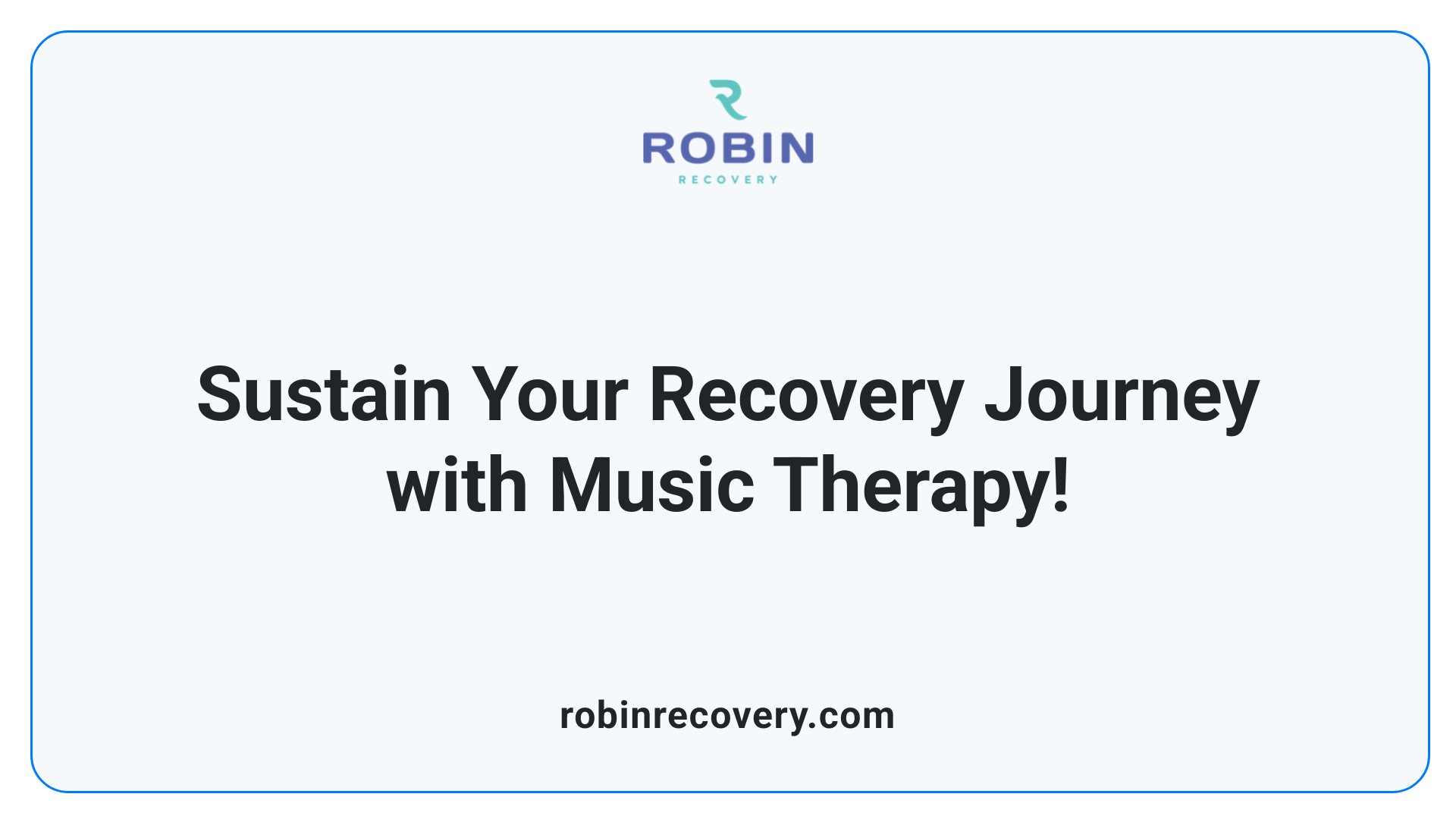How Music Therapy Supports Emotional Healing in Recovery

Introduction to Music Therapy in Recovery
The path to recovery from addiction and mental health challenges often requires a comprehensive approach, encompassing both traditional and alternative therapies. Among these, music therapy has gained recognition for its unique ability to foster emotional healing. Music therapy, a scientifically backed therapeutic practice, involves the strategic use of music by trained professionals to achieve individualized goals around emotional well-being. This article explores the various facets of music therapy, highlighting its historical context, techniques, and scientific basis, while delving into how it aids emotional healing, particularly within recovery settings.
The Healing Melody: Historical and Scientific Perspectives

What are the historical context and applications of music therapy?
Music therapy has a rich history that traces back to ancient civilizations, where it was believed that music possessed healing properties. One of the earliest documented references dates as far back as 1789. Systematic experimentation with music began in the 1800s, leading to a greater understanding of its therapeutic potential. The 1940s marked a pivotal moment, as early pioneers advocated for music therapy's recognition as a clinical profession. This period saw the establishment of professional organizations, solidifying the practice and its methodologies. By the 1950s, the term "music therapy" gained formal recognition, leading to broader applications in various medical fields. Today, it plays a significant role in mental health and special education, often used alongside other therapeutic methods to enhance holistic patient care.
Is there evidence supporting the efficacy of music therapy?
Yes, extensive research supports the effectiveness of music therapy across various conditions. A 2016 meta-analysis demonstrated positive outcomes of music-based interventions on pain management and emotional distress, particularly in chronic pain cases, corroborated by findings in a 2017 systematic review. Cochrane reviews have highlighted music therapy’s effectiveness in reducing anxiety among surgical and cancer patients, while improving depressive symptoms in individuals with dementia. Additionally, it has shown improvements in global functioning for serious mental disorders and Parkinson's disease, without adverse effects. This body of evidence validates music therapy as a clinically sound intervention across diverse populations.
What are the differences between music therapy and sound therapy?
While both therapies involve sound, music therapy and sound therapy differ significantly. Music therapy is a structured clinical intervention designed to enhance emotional well-being through musical activities like composition and songwriting. It is delivered by trained professionals within various healthcare settings. In contrast, sound therapy is often less regulated and focuses on using sounds and frequencies for relaxation and self-healing, lacking the structured musical elements of music therapy. Additionally, music therapy engages in emotional responses in a therapeutic setting, while sound therapy seeks physical and energetic balance through sound alone. Both recognize sound's therapeutic benefits, but their methods and professional standards diverge markedly.
AspectMusic TherapySound TherapyStructureStructured clinical interventionLess structured, often informalFocusEmotional well-being and therapeutic processRelaxation and self-healingProfessional OversightConducted by trained professionalsOften less regulatedMethodologiesComposition, songwriting, musical activitiesUse of sounds and frequencies
The Mechanisms Behind Emotional Healing Through Music
Benefits of music therapy on emotional health
Music improves emotional health in several ways. It stimulates dopamine release in the brain, enhancing mood and alleviating feelings of anxiety and depression. Studies reveal that listening to music can effectively reduce stress and anxiety levels while improving emotional expression, allowing individuals to embody their feelings creatively through music. Participating in music-making activities fosters community and belonging, which is vital for mental well-being.
Moreover, music therapy has demonstrated effectiveness in relieving symptoms associated with conditions such as Alzheimer’s and dementia, enhancing communication and overall mood.
How does music therapy specifically aid in emotional healing?
Music therapy aids in emotional healing by harnessing the power of music to help individuals relax and explore their emotions in a safe space. This therapeutic approach effectively reduces symptoms of anxiety and depression, eases stress, and helps regulate mood, making it a vital tool for emotional management.
By engaging with music, individuals can express themselves creatively, empowering their overall well-being. Furthermore, music therapy is adaptable across varied settings like clinical, educational, and community programs, enhancing its accessibility. Ultimately, the therapeutic use of music not only propels emotional healing but also fosters the development of social skills and communication.
Exploring Techniques and Interventions in Music Therapy
Music therapy techniques
Music therapy employs various techniques that cater to the emotional and psychological needs of individuals in recovery. These include:
Active and receptive music therapy
Music therapy is broadly categorized into active and receptive interventions:
Both approaches work together to support individuals on their recovery journey, helping to improve their emotional well-being and strengthening their coping skills.
Integrating Music Therapy with Traditional Treatments

How is music therapy integrated with traditional treatment methods in addiction recovery?
Music therapy plays a crucial role in enhancing traditional treatment methods for addiction recovery. By incorporating evidence-based therapies such as cognitive behavioral therapy (CBT) or dialectical behavior therapy (DBT), music therapy provides additional emotional support and creative outlets.
Benefits of Integration
Importance of Qualified Therapists
Working with trained music therapists ensures that the interventions are tailored to individual needs and that potential triggers from specific types of music are appropriately managed. Additionally, this integration highlights that recovery does not mean the absence of joy; rather, it emphasizes finding joy in healthier, constructive ways. Overall, music therapy harmonizes with traditional treatments to create a comprehensive recovery experience that nurtures emotional, cognitive, and social growth.
The Cognitive and Emotional Benefits of Engaging with Music

How Does Music Aid in Physical and Emotional Healing?
Music therapy engages distinct areas of the brain that process emotions, memory, and pain, which significantly aids both physical and emotional healing. This therapeutic practice has proved effective in reducing anxiety and perceived pain. Patients engaged in music therapy often report decreased discomfort levels and enhanced mood, demonstrating the efficacy of sound in recovery settings. Historically, music has been associated with promoting emotional and physical healing, making it a vital element in healthcare environments where communication between patients and caregivers is essential.
Listening to calming or uplifting music activates cognitive functions, promoting the release of endorphins and serotonin. These neurotransmitters are crucial for emotional regulation, fostering an environment where individuals can express their feelings safely. Through its profound therapeutic effects, music creates an inviting space for emotional healing, reinforcing its role as a powerful tool in recovery processes.
Cognitive Benefits of Music Therapy
Music therapy significantly enhances cognitive functioning, particularly memory recall and concentration. Engaging with music stimulates various brain regions, helping to forge new neural pathways essential for those rehabilitating from substance use disorders. Techniques like lyrical analysis encourage patients to connect personal experiences with musical narratives, enhancing cognitive awareness and emotional expression.
Moreover, active participation in music therapy can improve attention span and decision-making abilities, particularly for individuals undergoing addiction recovery. These cognitive gains are critical as they empower individuals to confront the challenges of sobriety with improved mental clarity and self-awareness. Overall, music therapy not only facilitates emotional healing but also strengthens cognitive resilience, creating a comprehensive support system for recovery.
Real-Life Impacts: Testimonials and Case Studies

What are some case studies or testimonials that highlight the impact of music therapy on mental health?
Music therapy has demonstrated significant benefits in treating various mental health conditions, particularly depression, anxiety, and trauma. For example, lyric analysis allows individuals to connect personal experiences with song lyrics, aiding emotional processing. Active participation in music, such as improvisation and group activities, fosters emotional expression and social interaction.
One notable case involved mothers suffering from postnatal depression, where group drumming circles resulted in reduced depressive symptoms and improved social resilience. This approach not only provided therapeutic relief but also strengthened community bonds among participants.
Moreover, music therapy creates a nurturing environment conducive to trauma healing. It enhances interpersonal communication skills and encourages the development of positive emotional behaviors, thus leading to improved mental health outcomes. Research supports these findings, indicating that music therapy plays a vital role in helping individuals articulate feelings and cultivate effective coping strategies.
Music as a Catalyst for Holistic Recovery

Music therapy's role in holistic recovery
Music therapy serves as a transformative support in addiction recovery, with qualified therapists customizing sessions to improve various aspects of a person's well-being. This therapy taps into the healing power of music to address mental, emotional, social, and cognitive needs, essential for those recovering from substance use disorders.
Engaging in active and receptive music interventions—whether creating music or listening—allows individuals to process their emotions and manage stress. The emotional connection fostered through music promotes relaxation and enhances mood, addressing anxiety and depression commonly faced in recovery settings.
Supporting long-term sobriety
To support lasting recovery, music therapy promotes emotional resilience and coping skills, helping clients manage triggers and cravings. Studies indicate that music therapy can lead to significant improvements in emotional regulation and mood stabilization.
Moreover, creative expression within music therapy empowers individuals to articulate feelings, facilitating personal growth and a sense of community, which are vital for maintaining sobriety. Through engagement in music, clients gain joy and connection, crucial elements enhancing their recovery journey.
Conclusion: Harmonizing Hearts and Minds with Music Therapy
Music therapy emerges as a dynamic and effective tool for supporting emotional healing in recovery from addiction and mental health challenges. Integrating scientific insights and traditional healing practices, this therapeutic approach empowers individuals to explore and express emotions, fostering resilience, and promoting mental well-being. As an accessible and versatile treatment option, music therapy stands as both a complement to and a bridge between conventional treatments, crafting pathways toward holistic healing and long-term recovery. In this harmonious journey, music is not just a melody, but a profound companion aiding us toward well-being and fulfillment.
